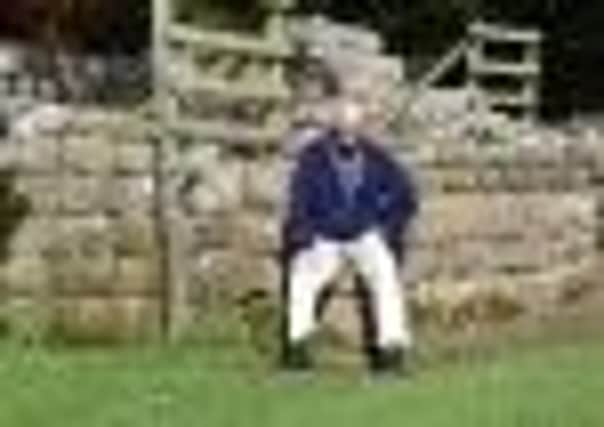A city’s search for life-savers


The father of two suffered a genetic condition, Alpha-1 antitrypsin deficiency, which affects the liver and lungs.
As a result, last year he developed tumours on his liver which had to be treated with chemotherapy before he could go on the transplant waiting list.
Advertisement
Hide AdAdvertisement
Hide AdIn September, a liver became available and Andrew, from Wyke, near Bradford, underwent a 10-hour transplant operation.
“I wasn’t as scared as I was when they told me I had cancer,” says Andrew.
The transplant also means that Andrew no longer has antitrypsin. He has written to the donor’s family thanking them .
“It’s the gift of life,” he says. “It’s changed my whole outlook on life. I’m quite emotional about it all and still find it quite hard to talk about it. The gift of life cannot be equalled.”
Advertisement
Hide AdAdvertisement
Hide AdAndrew was one of 26 people last year who benefited from organs donated in the Bradford area by nine people after they died. This represents a 90 per cent increase since the beginning of 2010, when Bradford Hospitals Foundation Trust announced its campaign to increase donation from Bradford Royal Infirmary.
“Thanks to the altruism of donors and their families in Bradford, a record number of organs have been made available for transplantation since June last year, and a record number of people’s lives have been saved or improved as a result,” said Dr Paul Cramp, the clinical donation champion and Intensive Care Unit (ICU) consultant.
It is a year since Bradford launched its initiative to increase donation – especially from within the area’s south Asian community – following the news that the hospital had had just seven donations in the previous five years.
“The increased rate shows that the initiative has been a remarkable success and that people, both here in the hospital and in the community, are serious about organ donation,” added Dr Cramp.
Advertisement
Hide AdAdvertisement
Hide AdHowever, there is still a great need for donors from the Asian community, despite there being a higher rate of live donations (between relatives and siblings) within this community.
Nasir Ahmed, from Bradford, received a kidney from an donor last year after a kidney from his own father failed.
He is now urging other members of the Asian community to come forward.
“Do not fear – in the Koran it says that if you save someone’s life you save all generations. I would encourage people to donate kidneys and donate blood or any part of your body.
Advertisement
Hide AdAdvertisement
Hide Ad“If you are prepared to take, you should be prepared to give and save someone’s life.”
Consultant physician, Jahangir Rehman said: “I’d encourage the local community to continue to see the value that organ donation can bring, especially in a city where there is a great need for transplantation. Asian people are four times more likely to need a kidney transplant but less likely to get one because of problems with blood groups and tissue type.
“If the organ comes from an Asian donor, there is a better chance of success, so I would appeal to people in the Asian community to consider joining the organ donor register today; discuss it openly with your family so they can fulfil your wishes when you die.”
The BRI’s Specialist Nurse in Organ Donation, Jayne Fisher, works alongside the intensive care consultants and the hospital’s donation committee to champion donations and streamline the pathways of potential donors. Her work ensures that more people have their decision to donate fulfilled and more lives are saved through transplantation.
Advertisement
Hide AdAdvertisement
Hide Ad“The rise in organ donor numbers in Bradford is a tribute to the generosity of the donors and their families, and they deserve our sincere thanks. The need for more transplants remains – especially from within our south Asian community – and I hope that the developments over the past year will allow progress to be maintained through the coming year.”